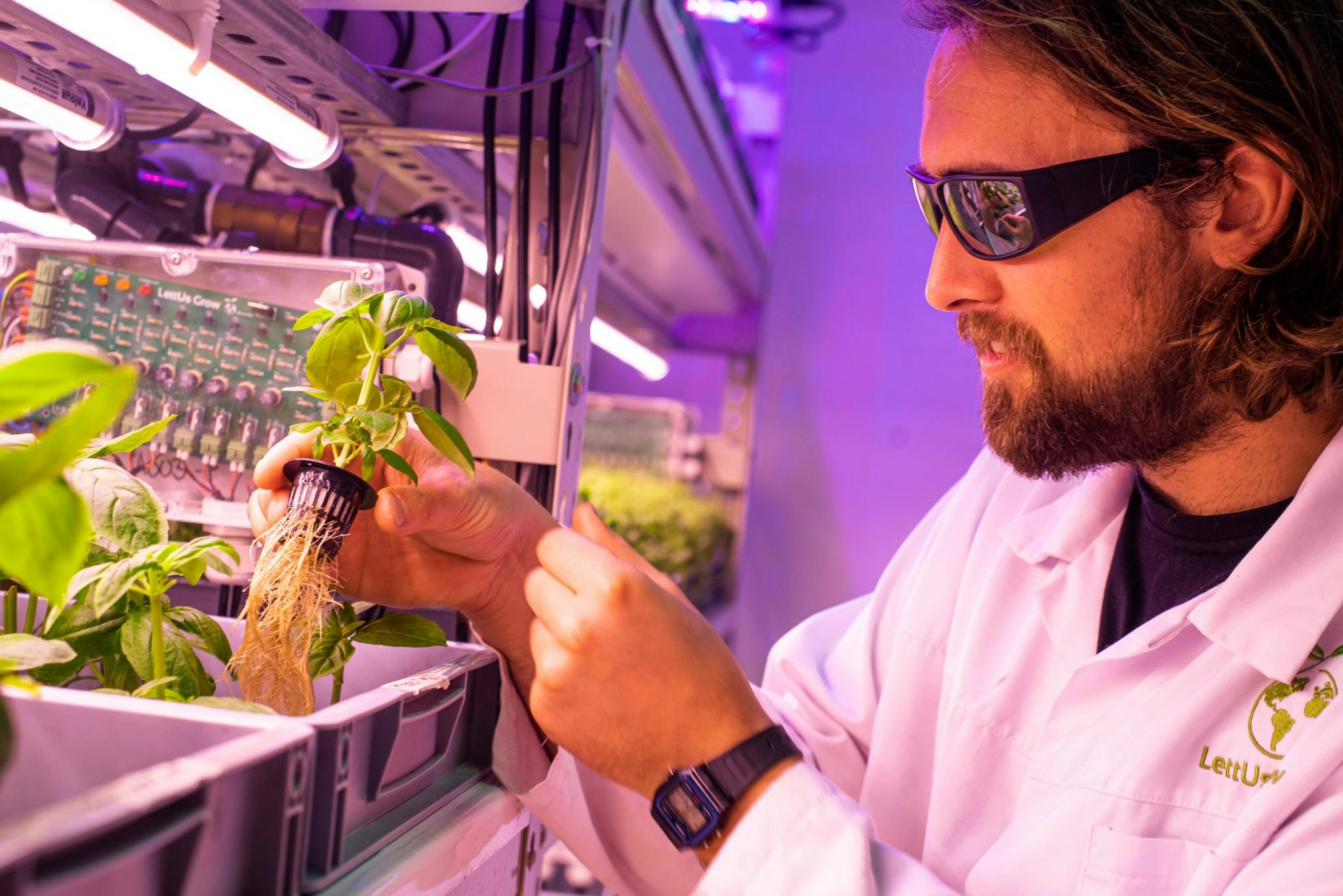The past decade has seen tech advancements that just decades ago would have been the stuff of sci-fi movies — but that innovation has often come at the expense of the planet and the people that live on it.
But a new trend has emerged that’s seeing a growing number of entrepreneurs developing tech that’s both profitable and good for society. In the UK alone, Tech Nation counts 490 "tech for social good" firms that have raised over £1bn from VCs.
We’ve probably done 10 years worth of digital acceleration in the last two years of the pandemic, so the opportunities are massive
“Anyone genuinely trying to solve problems in the world using tech is tech for good,” says William Gadsby Peet, cofounder and chief strategy officer of digital marketing agency Literal Humans, which specialises in tech for good digital marketing campaigns. “We’ve probably done 10 years worth of digital acceleration in the last two years of the pandemic, so the opportunities are massive.”
According to Tech Nation, most social good firms are based in edtech, fintech and AI, but there are plenty more areas ripe for positive disruption. Here’s what the experts say are the biggest opportunities ahead.
Take a proven business model and make it ‘good’
Gadsby Peet says a huge opportunity for tech for good companies is to take an idea that’s already been done — and is proven to make money — and to make it better for people and the planet.
“One of the cool things that we’re starting to see is a lot of people realising, 'hey here’s a platform that has been doing this in a way that’s cool, but very much aimed at profit and potentially either a bit ethically grey or ethically bad',” he says. “Why don’t we make a good version of that? Why don’t we create a version of it that helps people?”
Anyone genuinely trying to solve problems in the world using tech is tech for good
One example is Literal Humans client and UK fintech Treecard. Treecard makes a “wooden MasterCard,” made from sustainably sourced cherry trees and recycled plastic bottles. Not only is the card more sustainable than a typical plastic credit card, but the banking app uses merchant transaction fees to plant trees, promising 80% of profits will go to reforestation.
“Treecard is essentially Monzo, but every time you use it it plants a tree in the world,” says Gadsby Peet. “They’ve taken a cool concept that someone used just to make money and they’ve taken it one step further to help the world.”
Treecard is part of a newer subsector of “climate fintech,” which is growing as customers demand more climate action from their financial services. Crunchbase data found at least 16 climate fintechs raised funding rounds last year — mostly seed or Series A.
Notable European climate fintechs include Tomorrow, a Hamburg-based digital bank that uses customer deposits to finance sustainable projects, and impact investment platforms like Zurich-based Yova, which allows consumers to invest their savings into impact-focused businesses like renewable energy, diversity and healthcare.
Making wealth more accessible
While many tech for good startups are working on revamping proven business models with a better purpose, some are using tech to make archaic institutions more accessible.
One such company is Bloom Money, a fintech that helps migrant communities build generational wealth.
“What I found given my career in fintech — I worked for MasterCard, for Starling, for Klarna — was that I was building the same fintech propositions for the same people, but not really for the people that could benefit most from the fintech,” says Nina Mohanty, Bloom Money’s founder.
“Currently a lot of migrant communities are very community-driven when it comes to financial services because it’s difficult for them to access existing services,” she says. “We’re building the technology to allow people to do what they’re already doing and this takes the form of basically a multiplayer savings pool.”
Currently a lot of migrant communities are very community driven when it comes to financial services because it’s difficult for them to access existing services
Gadsby Peet also mentions Literal Humans’ client Chipper Cash, a US-founded company that enables free and instant peer-to-peer cross-border payments in Africa and Europe. This means better access to basic utilities like international money transfers and phone contracts, as well as services like cryptocurrency trading. The company recently raised $150m in a Series C extension round, following a $100m Series C round led by SVB Capital.
Although fintech is “super hot right now”— there are over 30 fintech unicorns in Europe alone — as is investors’ growing appetite for ESG (environment, social and governance goals), Mohanty says the opportunities for solutions that aid financial inclusion often get overshadowed by climate solutions.
“I think a lot is focussed on the E right now, so lots of climate tech,” she says. “But when it comes to the S and G part, it’s perhaps slightly lacking.”
Paul-David Perry, Literal Humans’ cofounder and chief executive agrees, and thinks that tech for good’s maturation should help a wider range of startups that are creating a genuine impact get funded.
One of the things that gives me some hope is that I do think more and more of the tech space doesn’t actually need VC funding to get off the ground. You can bootstrap pretty effectively
“Funders in particular are saying: OK, these are nice broad concepts, how do we measure them at the level of the startup?” he says. “I think that’s pushing a level of sophistication and maturity in terms of metrics and impact.”
Gadsby Peet says there are also increasing opportunities to build a company without VC funding, which is typically trend-driven and often seen as a gatekeeper.
“One of the things that gives me some hope is that I do think more and more of the tech space doesn’t actually need VC funding to get off the ground,” he says. “You can bootstrap pretty effectively.”
VCs also tend to keep their bottom line in focus, which isn’t always a match for tech for good companies. Wildling Shoes, which makes footwear for healthier feet, is one such tech for good startup bootstrapping its way to a completely sustainable supply chain. Although she wasn’t initially opposed to using investors, Yona started with crowdfunding and quickly found that bringing in outside help would risk sacrificing her ideals.
VCs also tend to keep their bottom line in focus, which isn’t always a match for tech for good companies
“An investor asked what my vision for the company was, and I said we want to make really great shoes and help people get to better health,” Yona tells Sifted. “But what they wanted to hear was what kind of turnover we were expecting in five years.”
Improving mental health through HR tech
Thanks to the toll the pandemic has taken globally, mental health is a key focus and tech for good area to watch — between 2019 and 2020, funding into Europe’s mental health startups has increased 4.5 times.
With a significant shift towards work from home policies in many workplaces, and the division between home and work life evaporating, HR tech has become a particularly hot area. One such HR tech startup working towards better worker mental health is Literal Humans client Progression, which has built a platform that helps managers track their employees’ professional growth over time.
“All too often there's an imbalance of information when it comes to professional development,” says Jonny Burch, Progression’s founder. “Employees are kept in the dark as to what exactly is expected of them, while managers, often through no fault of their own, have to think on their feet when answering tricky questions around what's next. That leads to employees burning out, leaving and managers failing their teams.”
This imbalance has worsened with the pandemic shutting down offices and workspaces, Burch says, but companies are now “waking up to the fact that if they want to keep their staff happy, they need to readdress the power balance”. This can be anything from upgrading their tools to implementing four-day work weeks.
Employees are kept in the dark as to what exactly is expected of them, while managers, often through no fault of their own, have to think on their feet when answering tricky questions around what's next. That leads to employees burning out, leaving and managers failing their teams
“They’re responding to a gap in the market that millennials and Gen Z are stepping into workplaces and are demanding being better taken care of and supported in their work and in personal development,” says Perry, who adds having a structure in place that makes it clear how you can move up an organisation also has huge implications for diversity, equity and inclusion.
Other "HR tech for good" opportunities lie in offering therapy sessions to employees, and platforms that teach new knowledge and skills. After all, Gadsby Peet says, “so many of society’s issues are fixable from your employment.”
Schedule a strategy session with Literal Humans now to discuss tech for good.



